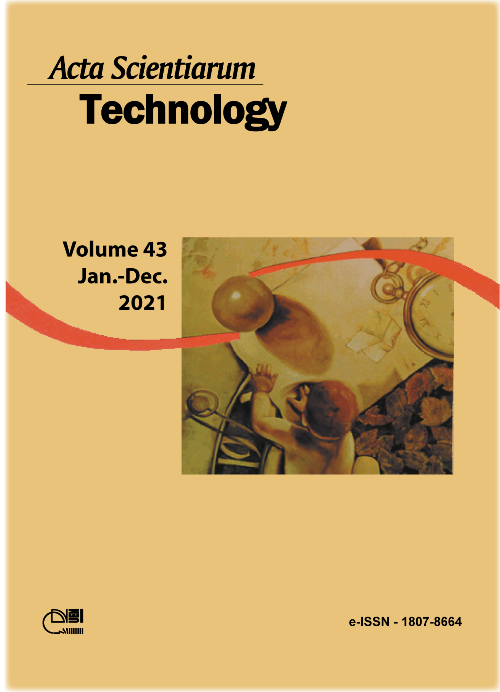Automatic Classification of COVID-19 using CT-Scan Images
DOI:
https://doi.org/10.4025/actascitechnol.v43i1.55189Palavras-chave:
coronavirus; machine learning; SVM; AdaBoost; NASNetMobile; InceptionV3Resumo
Medicine and engineering sciences have been working in close contact for common purposes. Machine learning algorithms are used in the medical field for early diagnosis prediction. The major aim of this study is to evaluate machine learning algorithms and deep learning algorithms using computed tomography scan (CT-scan) images for automated detection of the coronavirus disease 2019 (COVID-19) patients. We obtained seven hundred and fifty-seven (757) CT-scan images from a public platform. We applied four automated traditional classification methods to predict COVID-19 using deep learning and machine learning. These algorithms are SVM, AdaBoost, NASNetMobile, and InceptionV3. Comparative analyses are presented among the four models by considering metric performance factors to find the best model. The results show that the InceptionV3 model achieves better performance in terms of accuracy, precision, recall, Cohen´s kappa, F1- score, root mean squared error (RMSE), and receiver operating characteristic- area under the curve (ROC-AUC), in comparison with the other Covid-19 classifiers. Accordingly, the InceptionV3 approach is recommended for the automatic diagnosis of Covid-19 and assessments. This research can present a second point of view to medical experts and it can save time for researchers as the performance of standard machine learning methods in detecting COVID-19 is evaluated.
Downloads
Downloads
Publicado
Como Citar
Edição
Seção
Licença
DECLARAÇíO DE ORIGINALIDADE E DIREITOS AUTORAIS
Declaro que o presente artigo é original, não tendo sido submetido í publicação em qualquer outro periódico nacional ou internacional, quer seja em parte ou em sua totalidade.
Os direitos autorais pertencem exclusivamente aos autores. Os direitos de licenciamento utilizados pelo periódico é a licença Creative Commons Attribution 4.0 (CC BY 4.0): são permitidos o compartilhamento (cópia e distribuição do material em qualqer meio ou formato) e adaptação (remix, transformação e criação de material a partir do conteúdo assim licenciado para quaisquer fins, inclusive comerciais.
Recomenda-se a leitura desse link para maiores informações sobre o tema: fornecimento de créditos e referências de forma correta, entre outros detalhes cruciais para uso adequado do material licenciado.



















